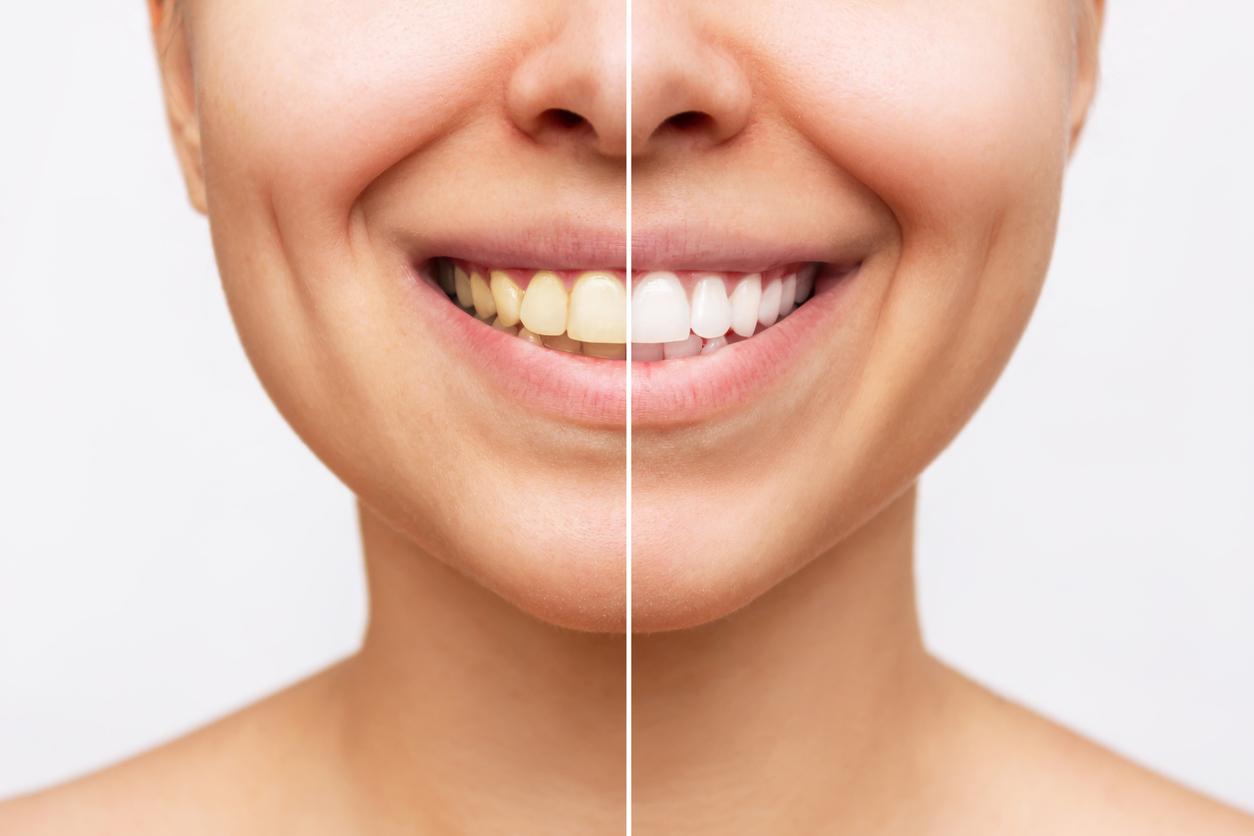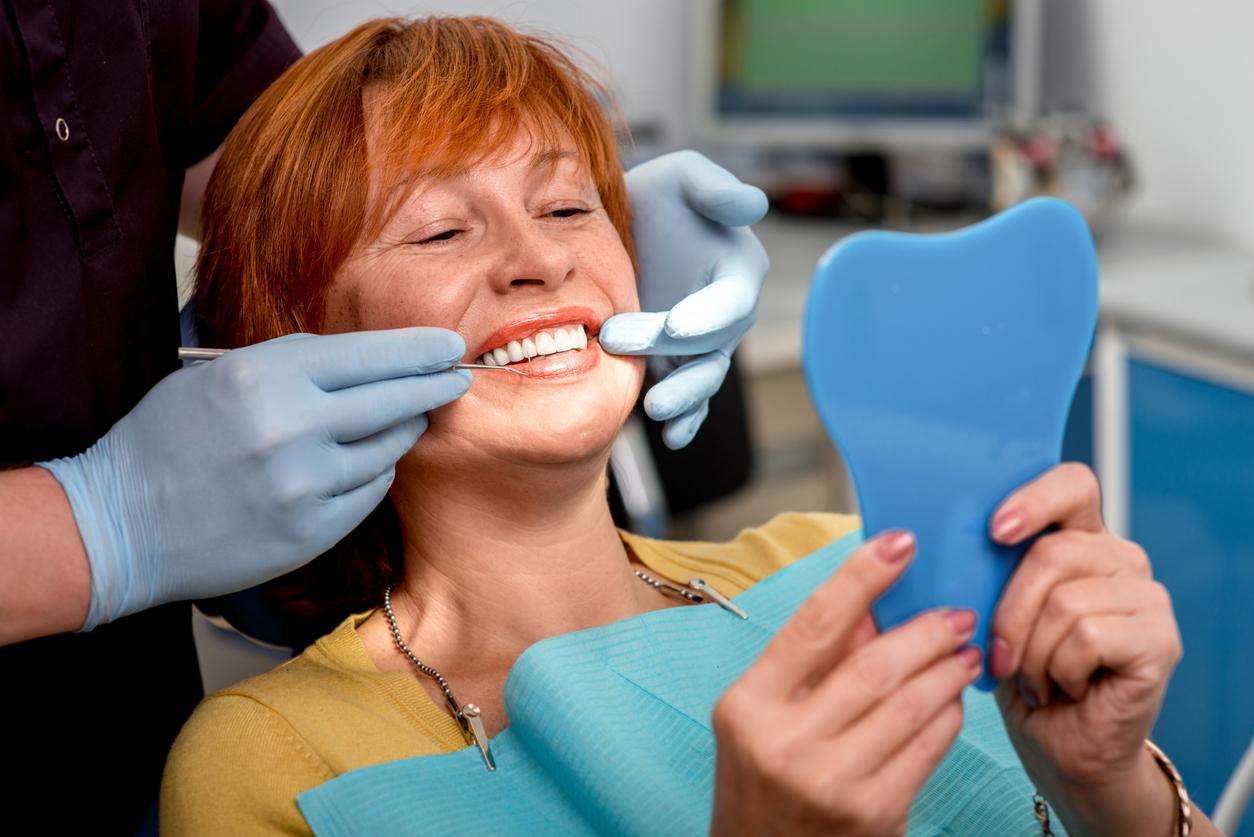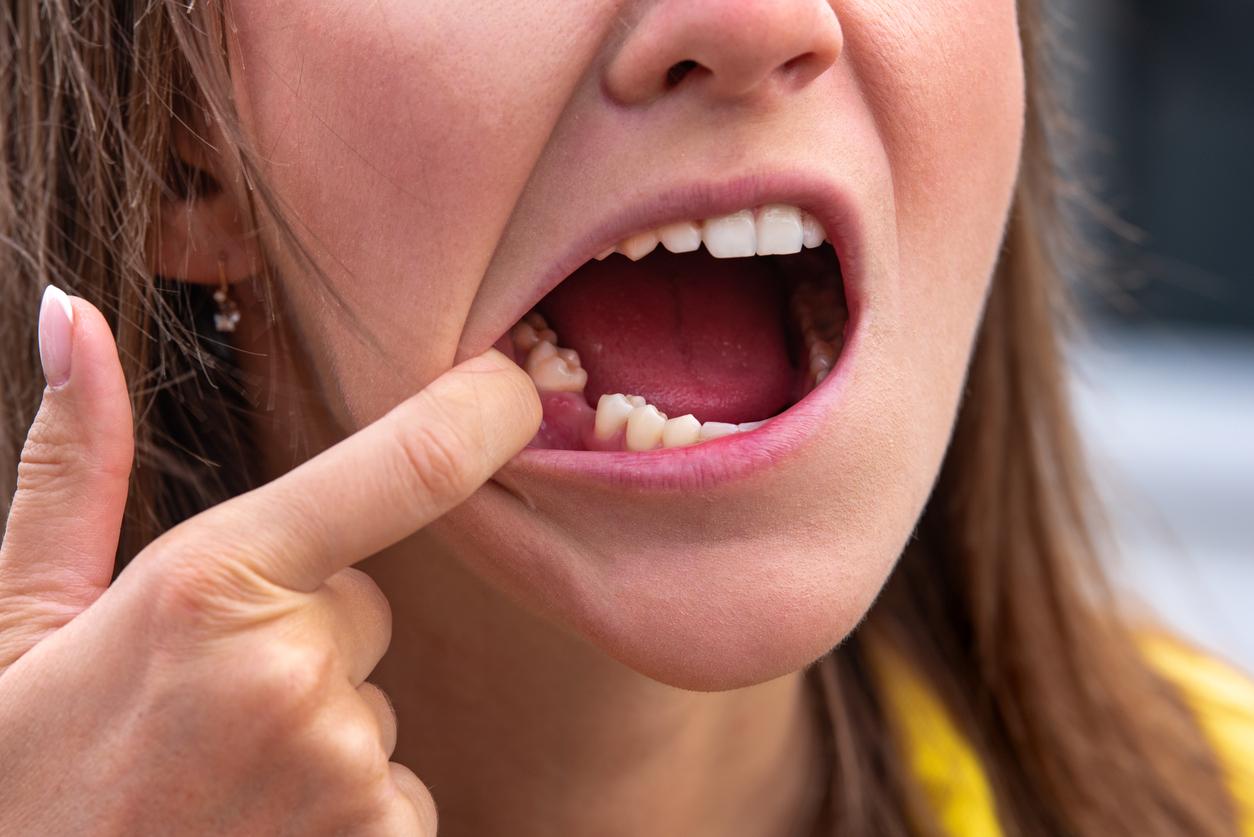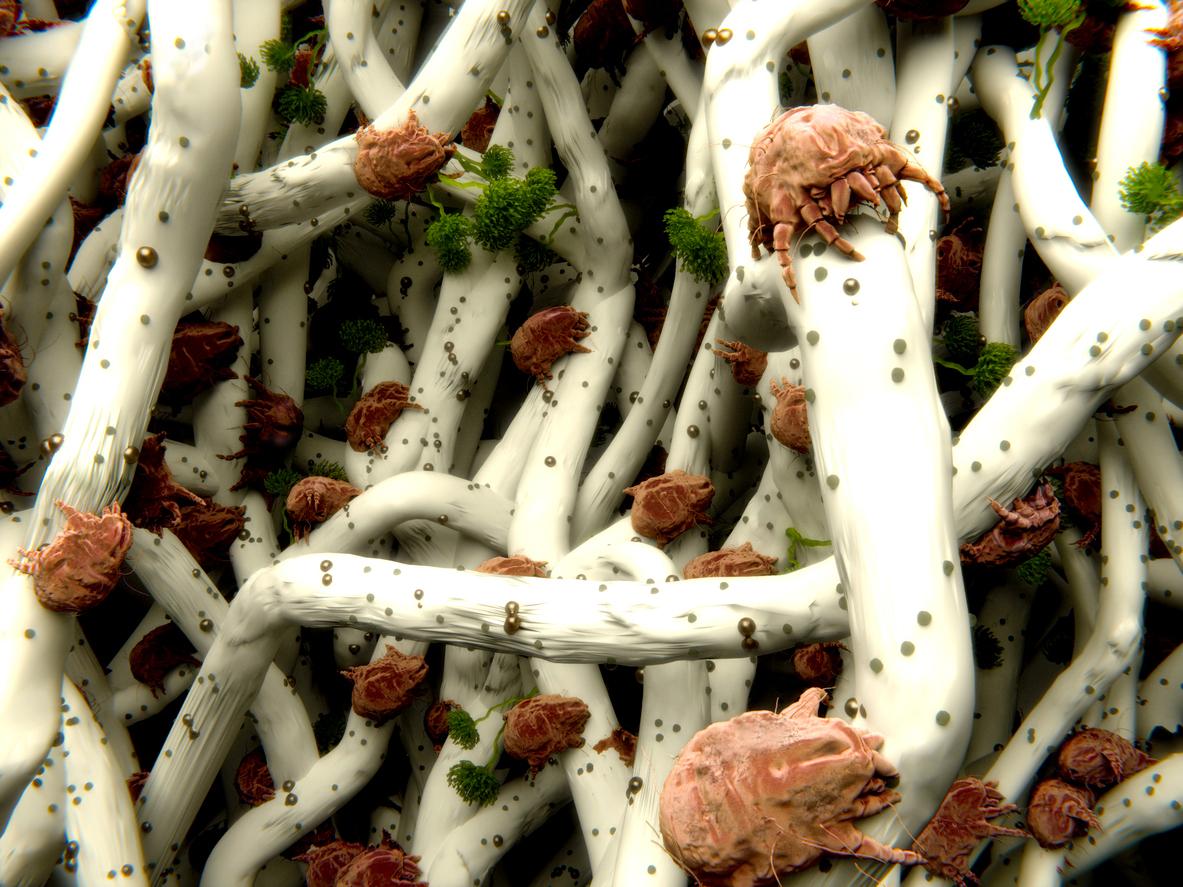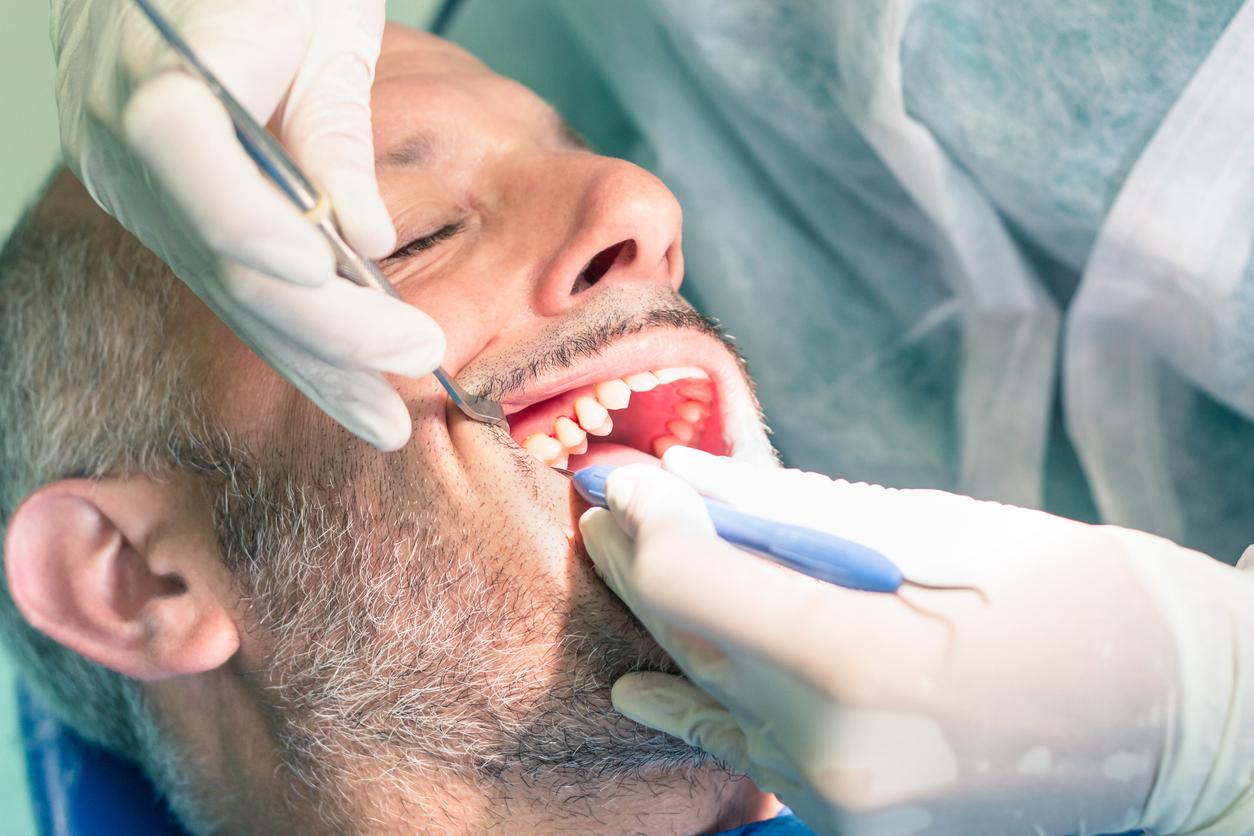The hydrogen peroxide contained in the whitening strips destroys the collagen present in the dentin, the inner layer of the teeth.
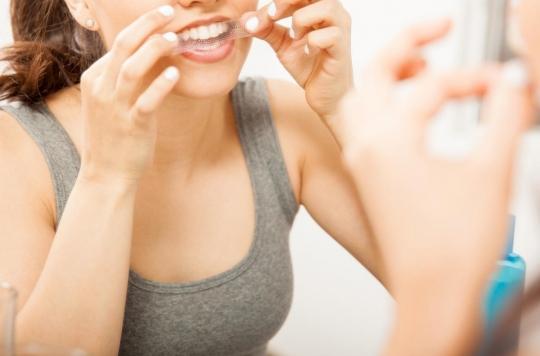
The quest for the perfect smile can be dangerous. Researchers have found that whitening strips damage teeth and publish their results in The FASEB Journal.
hydrogen peroxide
Whitening strips are one of the popular over-the-counter products for those who want to avoid the dentist. You have to leave it on your teeth for a while and repeat the operation to whiten them. Their action is based on the hydrogen peroxide they contain: it acts on the molecules that color the enamel.
Fragmentation of collagen
Most studies on hydrogen peroxide have focused on its effects on tooth enamel. But behind the outer enamel, there is a layer of dentin, rich in protein and collagen, and at the heart of it, the pulp. This new research, carried out by researchers at the University of Stockton in the United States, is precisely studying the effect of these whitening strips on the dentin.
“We sought to better understand what hydrogen peroxide does to collagen,” says Kelly Keenan, lead author of the research. To do this, they used whole extracted teeth and artificial saliva, then treated them with the whitening products. When teeth are exposed to hydrogen peroxide, the collagen present in the dentin breaks down and disappears.
Dr. Keenan says more work needs to be done to find out if these effects of hydrogen peroxide are the same on unextracted teeth. For the moment, the researchers do not know if the degradation of the collagen of the dentine is irreversible and if other proteins are degraded by the chemical product.
Strict regulations in France
In 2013, the National Agency for the Safety of Medicines and Health Products regulated the market for dental whitening products: those containing more than 6% hydrogen peroxide were banned and those containing between 0.1 % and 6% can only be used by dentists.
.








